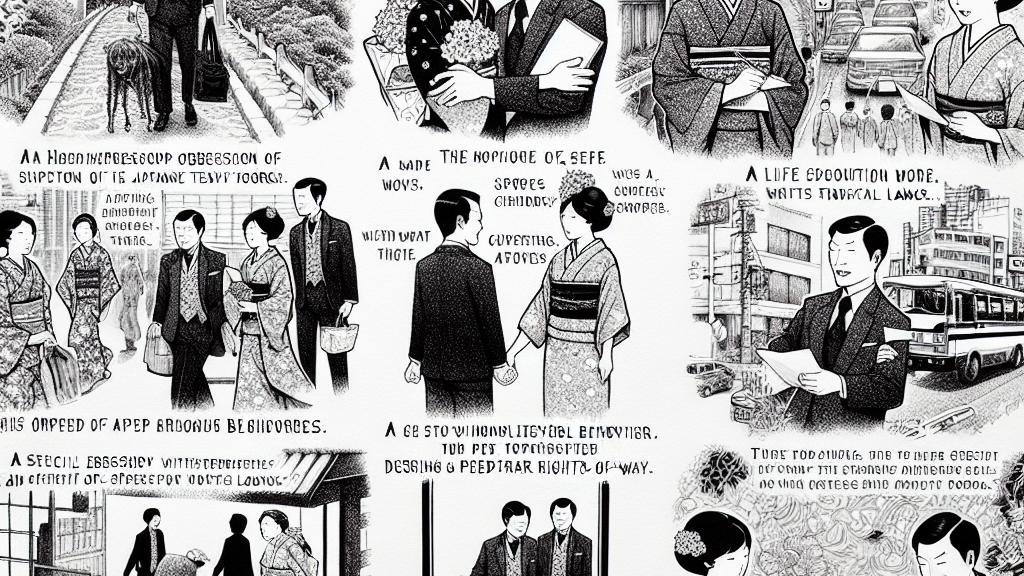The Story of Divorce Due to a Collision Obsession
Overview
- A heartfelt exploration of how unexpected behavioral traits can strain a marriage.
- Uncovers the challenges arising from undiagnosed mental health issues affecting daily interactions.
- Emphasizes the critical importance of effective communication and flexibility for a harmonious relationship.

Background of the Relationship
In the vibrant setting of Japan, a couple's journey began with enchantment and promise. Initially, the husband presented himself as a model of kindness, routinely demonstrating affection through thoughtful gestures. For instance, he would willingly carry heavy bags or open doors, embodying a gentle demeanor that her family admired. However, after they tied the knot, the wife's rose-colored glasses began to crack. His obsessive commitment to traffic laws, especially the rigid notion of right-of-way for pedestrians, became apparent and troubling. What was once perceived as endearing turned into a source of frustration, as he began to display inflexibility in social situations, leaving her bewildered and yearning for understanding.
The Incident that Triggered the Divorce
Then came that unforgettable rainy day. As the couple approached a narrow path, everything seemed ordinary until they spotted a man walking with his eyes glued to his phone. The husband, unwavering in his belief in his right-of-way, charged forward without a second thought. When their umbrellas collided, the startled man uttered an apology, but to the husband, it was as if nothing had happened; he showed no remorse. Shortly thereafter, they encountered a group of students. Again, unwilling to yield, he barreled through, almost as if he were testing the limits of his own entitlement. The sight was jarring—students gasped as they awkwardly rushed to avoid contact, creating a scene of confusion. Watching this unfold, the wife's heart sank as she realized that her husband's adherence to rules had eclipsed any sense of empathy or decorum. The contrast between her values and his was stark, and the cracks in their relationship widened in that moment.
Consequences and Reflection
In the aftermath, a profound silence enveloped them. The husband appeared genuinely shocked, not by his own conduct but by the startled reactions of onlookers. This disconnect left his wife deeply disturbed. It became glaringly obvious to her that his inability to read social cues and adjust his behavior posed an insurmountable barrier. With heavy hearts, she grappled with the decision to divorce him. She recognized that unless he could acknowledge his behavioral issues and work toward change, they would only continue down a path of conflict and alienation. Ultimately, the decision to end the marriage was not merely the conclusion of their shared life but a poignant reminder of the necessity for empathy, communication, and adaptability—invaluable qualities for nurturing any relationship, particularly when navigating the complexities of mental health issues.

Loading...